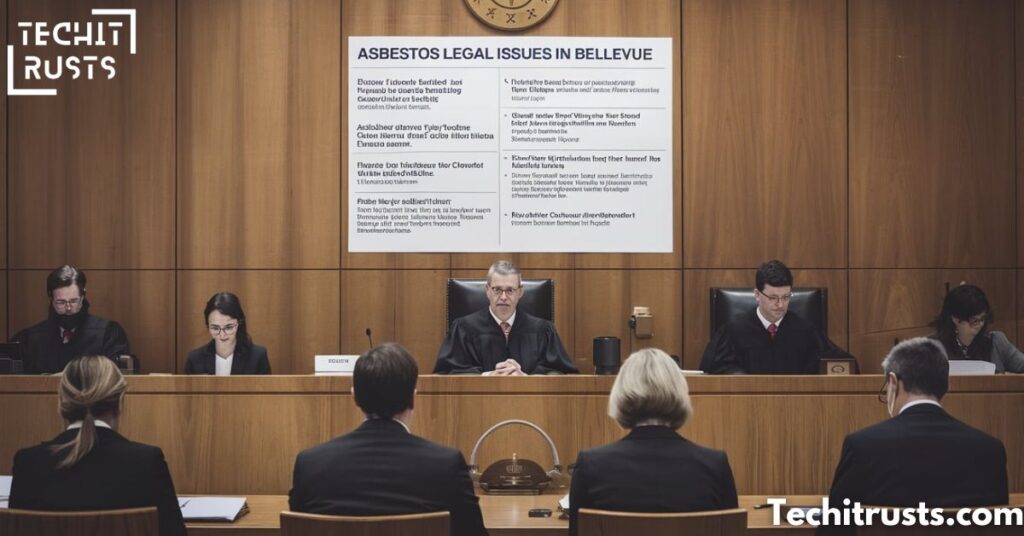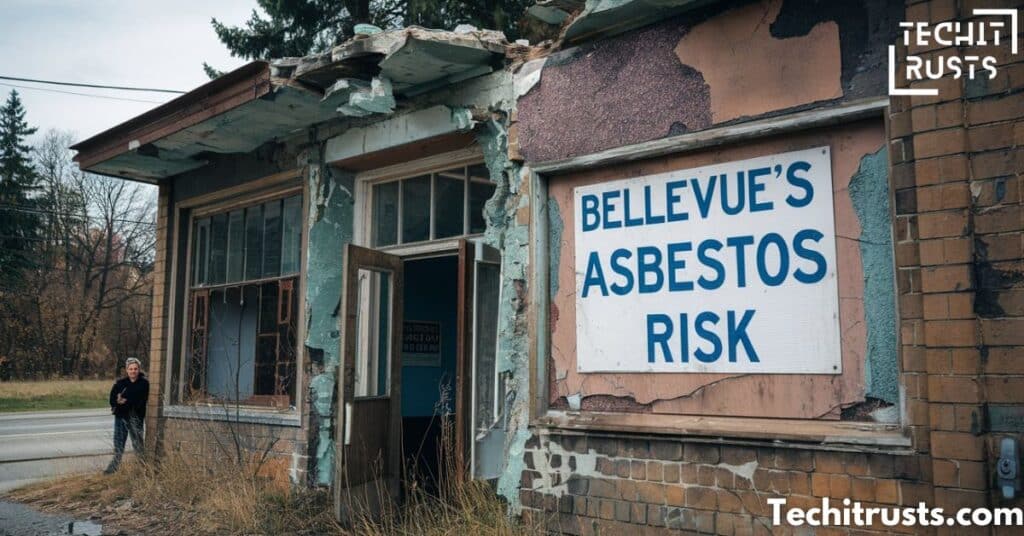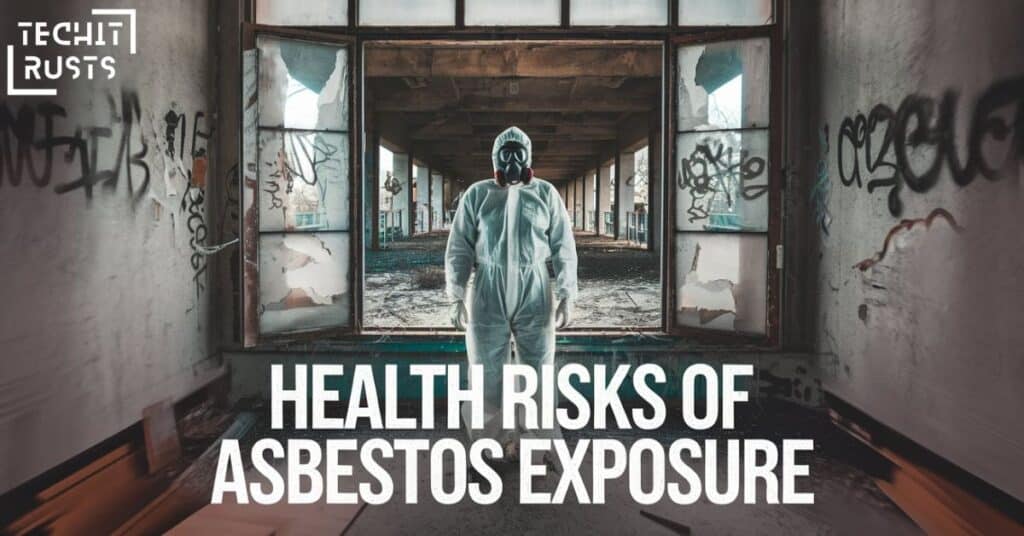Asbestos exposure has far-reaching implications, often resulting in severe health conditions like mesothelioma, lung cancer, and asbestosis. For residents and workers in Bellevue, understanding Bellevue asbestos legal questions is essential for safeguarding their health and understanding their rights.
This in-depth guide will cover asbestos legal issues in Bellevue, including local laws, safety standards, and available legal recourse. Whether you’re directly affected by asbestos or seeking information to protect your family and community, this guide will equip you with valuable insights.
Introduction to Asbestos Legal Issues in Bellevue

Asbestos exposure poses serious health risks, especially in Bellevue. Understanding the legal issues around asbestos is crucial to protecting your rights. This guide covers the basics of asbestos laws, your legal options, and steps to ensure your safety.
The Dangers of Asbestos Exposure
Asbestos was once widely used for its heat resistance, durability, and insulating properties. Despite these benefits, prolonged exposure to asbestos fibers can lead to severe respiratory conditions and cancers.
Even though asbestos use has significantly declined, it still poses a risk in older buildings, industrial sites, and certain manufacturing processes. Understanding the risks associated with asbestos exposure is the first step in protecting yourself and your loved ones.
Common Health Conditions from Asbestos Exposure
Asbestos fibers can become airborne, which increases the risk of inhalation or ingestion. Here are the main health conditions linked to asbestos:
- Mesothelioma: A cancer that affects the lining of the lungs, abdomen, or heart. It has a long latency period, often only developing decades after initial exposure.
- Lung Cancer: Asbestos-related lung cancer is another serious condition, especially common among people with smoking histories.
- Asbestosis: A chronic lung disease that occurs when asbestos fibers cause lung scarring, leading to shortness of breath and increased risk of other lung diseases.
- Pleural Thickening: Thickening of the lung lining that can cause breathing difficulties.
Understanding Bellevue’s Asbestos Risk
In Bellevue, asbestos is predominantly found in older buildings, particularly those constructed before the 1980s when asbestos use was at its peak. These buildings may contain asbestos in insulation, roofing, flooring, and pipe coverings.

Homeowners and workers in construction, manufacturing, and maintenance are especially at risk, which is why it’s crucial to understand the city’s legal landscape and take appropriate safety measures.
Why Addressing Asbestos Legal Questions Matters
Navigating asbestos-related legal issues is vital for several reasons:
- Health Protection: By understanding your legal rights, you can pursue adequate medical care, testing, and monitoring if exposed.
- Compensation: Successful legal claims can cover medical expenses, lost wages, and pain and suffering associated with asbestos-related illnesses.
- Holding Parties Accountable: Legal action encourages property owners and employers to adhere to asbestos safety standards, which helps prevent further exposure and promotes public health.
The Health Risks of Asbestos Exposure

Asbestos exposure can cause serious health issues like mesothelioma, lung cancer, and asbestosis. These diseases develop over time, often years after initial exposure, making early symptoms hard to detect. Recognizing the risks of asbestos exposure is crucial to safeguarding your health.
How Asbestos Enters the Body
Asbestos fibers are tiny, durable, and can remain suspended in the air for extended periods. Once disturbed, these fibers can be inhaled or swallowed, entering the lungs and potentially migrating to other areas of the body. Unlike other particles, asbestos fibers do not dissolve in the body and can persist in tissues indefinitely, causing damage over time.
The Impact on Lungs and Other Organs
After inhalation, asbestos fibers can cause inflammation and scarring in lung tissue. This can lead to reduced lung function and respiratory issues. Over time, these fibers may also cause genetic damage to cells, leading to cancerous changes.
Mesothelioma is one of the most aggressive and deadly forms of cancer associated with asbestos, commonly affecting the pleura (lung lining) and sometimes the peritoneum (abdominal lining).
Symptoms of Asbestos-Related Diseases
The symptoms of asbestos-related illnesses often appear gradually, making early detection difficult. Here are common symptoms to watch for:
- Shortness of breath
- Persistent cough
- Chest pain
- Unexplained weight loss
- Fatigue
Since these symptoms can also relate to other conditions, seeking medical attention and informing your healthcare provider of any known asbestos exposure is critical.
Real-Life Case Study
In 2021, a group of former shipyard workers from Washington state, including some from Bellevue, successfully filed a lawsuit against a construction company that failed to properly remove asbestos from a renovation site.
These workers experienced respiratory symptoms and were diagnosed with asbestosis and pleural thickening. By holding the company accountable, they not only secured compensation for medical expenses but also brought attention to the ongoing risks of asbestos exposure.
Bellevue’s Legal Framework on Asbestos

Bellevue’s legal framework on asbestos is designed to protect public health and ensure accountability. Strict state and local regulations govern the handling, removal, and disposal of asbestos to minimize exposure risks. These laws also provide avenues for affected individuals to seek compensation for asbestos-related illnesses through claims or lawsuits.
Local and State Regulations
In Bellevue, asbestos is regulated by both state and federal authorities, with specific rules regarding handling, removal, and disposal. The Washington State Department of Labor & Industries and the Environmental Protection Agency (EPA) play essential roles in overseeing asbestos regulations.
Federal Regulations
The EPA enforces the National Emission Standards for Hazardous Air Pollutants (NESHAP), which mandates safe asbestos removal practices. Additionally, the Occupational Safety and Health Administration (OSHA) has specific guidelines that employers must follow to protect workers from asbestos exposure in the workplace.
Washington State Regulations
Washington has adopted the Asbestos Hazard Emergency Response Act (AHERA) standards, which apply to public and non-profit school buildings. The state also mandates licensing and certification for anyone conducting asbestos removal, ensuring they follow proper safety protocols.
| Regulation | Description |
|---|---|
| NESHAP | Regulates asbestos emissions during demolition, renovation, and waste disposal. |
| OSHA Standards | Sets exposure limits, safety training, and respiratory protection requirements. |
| Washington Asbestos Certification | Requires certification for asbestos abatement professionals. |
Workplace Safety Standards in Bellevue
Workers in certain industries are more likely to be exposed to asbestos. Construction, demolition, shipbuilding, and manufacturing are among the highest risk industries. Employers in Bellevue are required to:
- Conduct asbestos risk assessments before renovations or demolitions.
- Provide personal protective equipment (PPE) and training on asbestos safety.
- Implement exposure monitoring to ensure employees are not exceeding permissible exposure limits.
Legal Responsibilities of Employers

Employers are legally responsible for maintaining a safe working environment. This includes regular training on the dangers of asbestos, proper safety protocols, and providing access to medical examinations for workers in high-risk positions.
Steps to Take if You Suspect Asbestos Exposure
If you suspect asbestos exposure, taking prompt and appropriate action is crucial to protect your health and legal rights.
Immediate Actions to Take
- Leave the Area: If you suspect asbestos has been disturbed, immediately exit the area to avoid inhaling any airborne fibers.
- Notify Authorities: Report any suspected asbestos exposure to your employer or building manager. In Washington, you can also notify the Department of Labor & Industries.
- Seek Medical Evaluation: Early detection can significantly impact your health outcomes. A doctor can conduct tests to determine if you’ve been exposed to asbestos and discuss monitoring options.
Legal Recourse for Exposure
If you have been exposed to asbestos, you may be entitled to legal compensation. This can include:
- Personal Injury Claims: If you’ve been diagnosed with an asbestos-related illness, you may pursue compensation for medical costs, lost income, and pain and suffering.
- Workers’ Compensation: For workplace exposure, you may qualify for workers’ compensation benefits, which can cover medical expenses and a portion of lost wages.
- Asbestos Trust Funds: Many companies have established trust funds to compensate individuals affected by asbestos exposure. You can file a claim if you meet the eligibility requirements.
Example of a Workers’ Compensation Case
In a 2019 case, a Bellevue electrician diagnosed with mesothelioma successfully filed a workers’ compensation claim against his former employer. The company had failed to provide adequate protective equipment during his years of service, leading to prolonged exposure to asbestos. The claim covered his medical bills, loss of income, and ongoing treatment expenses.
Frequently Asked Questions
Can I File a Lawsuit for Brief Exposure?
While asbestos-related diseases typically result from long-term exposure, there are cases where even brief exposure has led to severe health issues. If you can establish that asbestos exposure directly contributed to your illness, you may be able to pursue a claim.
How Do Asbestos Trust Funds Work?
Asbestos trust funds were set up by companies that manufactured or used asbestos products and later filed for bankruptcy. These funds aim to compensate people harmed by their products. Claiming from an asbestos trust fund typically involves proving your exposure and providing documentation of your medical diagnosis.
What is the Statute of Limitations in Washington State?
In Washington, the statute of limitations for filing an asbestos-related lawsuit is generally three years from the date of diagnosis. It’s essential to act promptly if you believe you have a claim, as waiting too long may result in forfeiting your right to compensation.
Conclusion
Understanding Bellevue’s asbestos legal issues is key to protecting both your health and your rights. By knowing the risks, you can take steps to avoid exposure and stay informed about available legal options.
If you or a loved one has been exposed to asbestos, act quickly to seek legal advice and medical help. With the right information and support, you can navigate Bellevue’s legal framework and pursue the compensation you deserve.
>>>Read Also: Independence Mesothelioma Legal Question: Exploring Your Legal Rights And Options

Ashi is the site admin for “techitrusts.com” and specializes in writing within the journal category. If you need more detailed information about his background or work, feel free to ask!